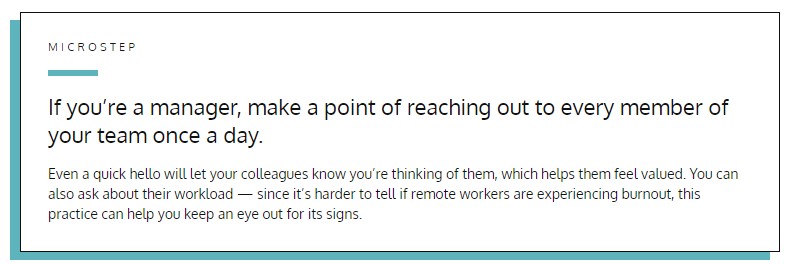To successfully adapt and thrive in this new normal, we can’t simply react to COVID-19-related workplace issues as they occur. Rather, we need to monitor key patterns and trends to predict challenges and effectively, proactively direct our efforts. Real-time tracking and analysis of the employee experience throughout this uncertain time is one of the most effective ways to understand how to support our colleagues in meaningful ways as they adapt to new ways of working and living.
With all of this in mind, we’ve created this space to share our newest findings and actionable insights. In addition to discussing what we’re observing in our real-time data, we’ll also be using this as a forum to let you ask questions and share your topics of interest in an effort to help you and those most important to you not just survive but thrive.
We encourage you to come back daily to see the latest findings on how employees are feeling about working from home through the coronavirus pandemic, plus Microsteps and solutions from Thrive Global to help you stay healthy and productive while working via remote.
Insight of April 1, 2020: Today’s Employer-Employee Communication Satisfaction Score Is… 66%
Effective communication is essential for reducing burnout and boosting teamwork, productivity, and downstream business outcomes, especially during times of high stress and physical disconnect such as these. Moreover, leadership and management communication are among the strongest contributors to perceived organizational support, work satisfaction, and performance — including people’s likelihood to go above and beyond.
Specifically, high-quality, consistent communication can reduce common barriers related to remote work and convey organizational values and a sense of caring about the well-being of your people.
The importance of communication is not just limited to leaders and managers. As employees continue to adapt to working from home, effective communication needs to flow both ways. Employees at every level need to feel empowered to speak up, seek clarity, and share feedback. As Arianna Huffington writes, “We must give people room to share what otherwise might be kept private — maybe they’re having trouble getting food or prescription deliveries or worrying about their parents’ health. Before we even begin to talk about business, we need to open the door to these conversations in authentic, compassionate ways, and keep that door open.”
While new communication technologies have made it easier than ever to work “here, there, and anywhere,” they also introduce new challenges. Working from home requires navigating issues related to role conflicts and boundaries. Indeed, technology use and communication, particularly when working from home, are major determinants of work-life balance and integration, affecting how we segment work and nonwork roles, our work attitudes and our feelings about flexibility, satisfaction, stress, and overwork.
As people adjust to this new normal, they are hungry for solutions. According to our survey results from over 5,000 employees across the country, nearly 80% of all employees wish they knew more actionable ways to improve their communication with managers, colleagues, and important others.
Recommended Read:
So how can we all — leaders, managers, and individual contributors alike — ensure that we’re communicating positively, effectively, and in ways that take into account the realities of our new normal? For one, I’d recommend reading my colleague Lindsey O’Connell’s article “How to Talk to Your Boss About Your New Work-From-Home Challenges.”
I’d also suggest trying out a Microstep around improved communication processes.

And if you’re looking to talk to your manager about COVID-19 concerns, reach out to them today and ask if you can schedule a daily five-minute touchbase. This way, you can rest assured that you’ll have time to check in with each other even when you’re not seeing each other in person.


